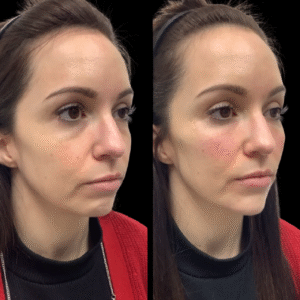Weight loss treatment is no longer a one-size-fits-all approach. With rising global obesity rates, the need for practical, safe, and sustainable solutions has never been more critical. Whether you’re looking for medical interventions, lifestyle changes, or a combination of both, this guide provides a deep dive into the most effective treatments for weight loss available today.
What Is Weight Loss Treatment?
Weight loss treatment refers to the medical and therapeutic interventions aimed at reducing excess body fat and achieving a healthy weight. These treatments can be broadly categorized into:
-
Lifestyle modifications
-
Prescription medications
-
Surgical procedures
-
Behavioral therapy
-
Alternative and holistic therapies
Each approach can be tailored depending on the individual’s weight, overall health, lifestyle, and goals.
Lifestyle-Based Weight Loss Treatments
1. Nutritional Counseling
A foundational element of any weight loss treatment plan is a healthy, balanced diet. Working with a registered dietitian helps individuals:
-
Identify calorie needs
-
Learn portion control
-
Incorporate nutrient-rich foods
-
Avoid crash diets and unsustainable fads
Customized meal planning promotes long-term weight loss success without depriving the body of essential nutrients.
2. Exercise and Physical Activity
Physical activity burns calories, builds muscle, and improves metabolism. Effective exercise routines include:
-
Cardiovascular exercises (walking, cycling, swimming)
-
Strength training (weights, resistance bands)
-
Flexibility workouts (yoga, Pilates)
Aim for at least 150 minutes of moderate activity per week for best results.
3. Behavior Modification
Cognitive Behavioral Therapy (CBT) and other behavioral techniques help:
-
Address emotional eating
-
Build motivation
-
Set realistic goals
-
Stay accountable
Behavioral treatment supports lasting change by addressing the mental habits that contribute to weight gain.
Medical Weight Loss Treatments
1. Prescription Weight Loss Medications
These are FDA-approved drugs prescribed by healthcare providers for patients with a BMI of 30 or higher, or 27 with related health conditions.
Top medications include:
-
Semaglutide (Wegovy) – A weekly injection that reduces appetite and improves insulin sensitivity.
-
Liraglutide (Saxenda) – Daily injection used to delay gastric emptying.
-
Phentermine-Topiramate (Qsymia) – Oral medication that suppresses hunger and enhances satiety.
-
Orlistat (Xenical) – Blocks fat absorption in the digestive tract.
-
Contrave (Bupropion-Naltrexone) – Targets brain receptors to control cravings.
Always consult a doctor before starting any medication for weight loss treatment.
Surgical Weight Loss Treatments
1. Bariatric Surgery
Bariatric procedures are recommended for those with severe obesity (BMI > 40) or BMI > 35 with comorbidities. Popular types include:
-
Gastric Bypass Surgery (Roux-en-Y): Alters digestion to reduce calorie absorption.
-
Sleeve Gastrectomy: Removes a portion of the stomach to limit food intake.
-
Adjustable Gastric Banding: A band is placed around the upper stomach to restrict the volume of food.
These surgeries often result in rapid and significant weight loss, but also come with risks and require lifelong dietary changes.
Non-Surgical Medical Devices
Newer, less invasive treatments include:
-
Intragastric balloons: A balloon is inserted into the stomach to create a sense of fullness.
-
Endoscopic sleeve gastroplasty: Uses an endoscope to suture the stomach into a smaller size.
-
Vagal nerve blocking devices: Electrical pulses interrupt hunger signals.
These options are ideal for individuals not ready for full surgery but needing more than lifestyle changes alone.
Alternative and Complementary Weight Loss Treatments
While not always supported by strong clinical evidence, many people explore:
-
Acupuncture – Believed to curb appetite and promote hormonal balance.
-
Herbal supplements, such as green tea extract, garcinia cambogia, and CLA, are common.
-
Mindfulness and meditation – Helps manage stress and reduce emotional eating.
Always discuss these therapies with your doctor before including them in your weight loss plan.
Who Can Benefit from Weight Loss Treatment?
Weight loss treatment is suitable for:
-
Individuals with a BMI ≥ 30 (obese)
-
Those with a BMI ≥ 27 plus weight-related conditions like type 2 diabetes or hypertension
-
People struggling to lose weight despite diet and exercise
-
Patients at risk of cardiovascular diseases or joint issues due to weight
An early intervention strategy leads to better long-term health outcomes.
Benefits of Weight Loss Treatments
Effective weight loss treatment can lead to:
-
Reduced risk of chronic diseases (diabetes, heart disease, stroke)
-
Improved mobility and joint function
-
Better sleep and energy levels
-
Enhanced self-esteem and mental health
-
Longer life expectancy
These benefits go beyond appearance—weight loss is a powerful tool in promoting overall wellness.
Risks and Considerations
Professionals must carefully supervise weight loss treatments. Potential risks include:
-
Side effects from medications (nausea, GI issues, mood changes)
-
Surgical complications (bleeding, infection, nutrient deficiencies)
-
Unrealistic expectations
-
Emotional and psychological strain
Successful outcomes depend on commitment, consistency, and professional guidance.
How to Choose the Right Weight Loss Medication
When selecting medicine for weight loss, one should consult a healthcare provider to weigh benefits, side effects, and personal health history. Here are critical considerations:
-
Medical history: Cardiovascular issues, diabetes, depression, or digestive disorders may affect medication suitability.
-
Lifestyle compatibility: Daily vs. weekly dosing, oral vs. injectable options.
-
Weight loss goals: Target weight and timeframe for reaching it.
-
Tolerance and adherence: Can the patient commit to the routine?
Conclusion: Personalized Treatment Is Key
There’s no single solution for everyone. The most effective weight loss treatment is a personalized combination of medical, behavioral, and lifestyle strategies. By working with healthcare professionals, individuals can safely achieve a healthy weight and maintain it for life.




